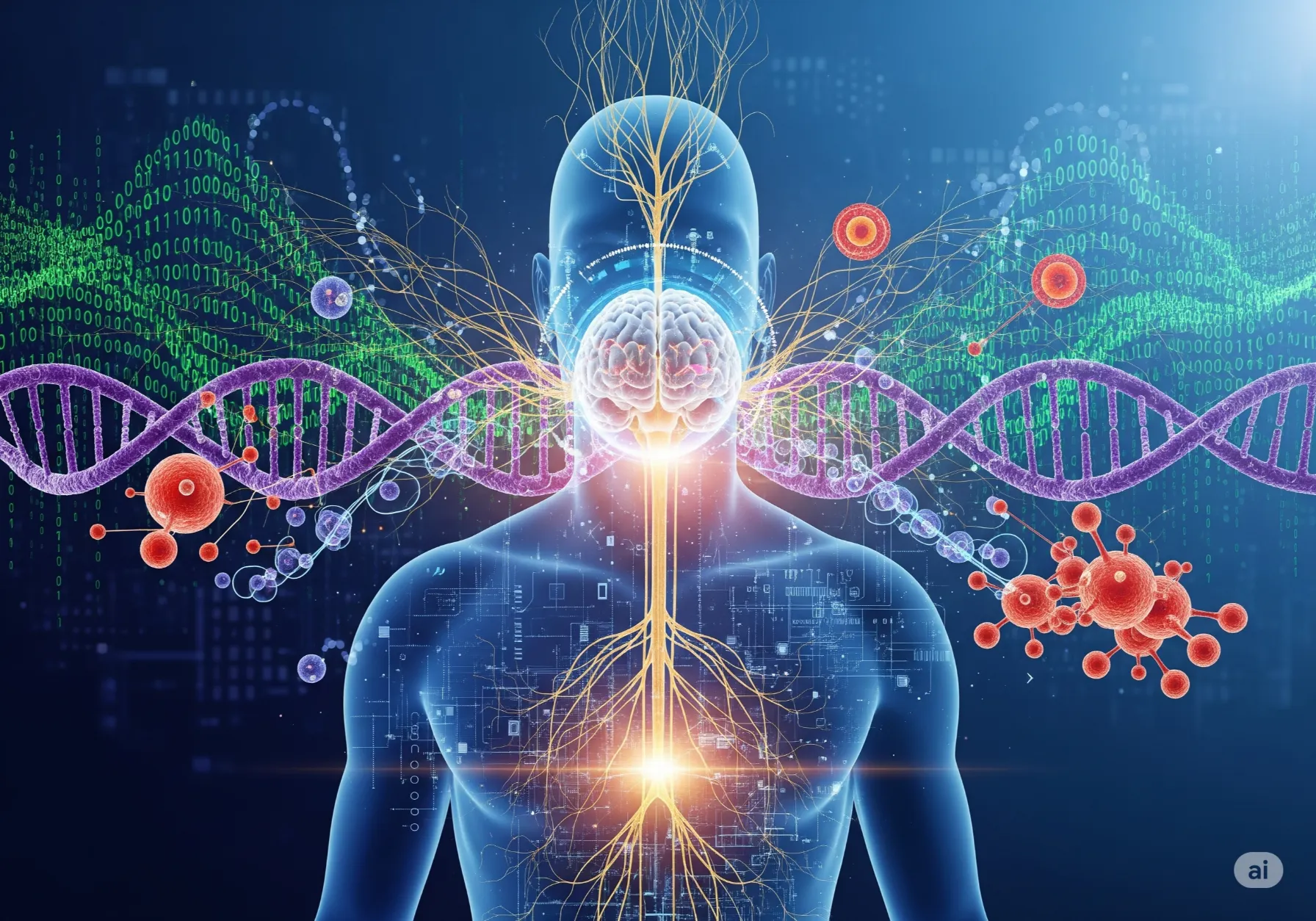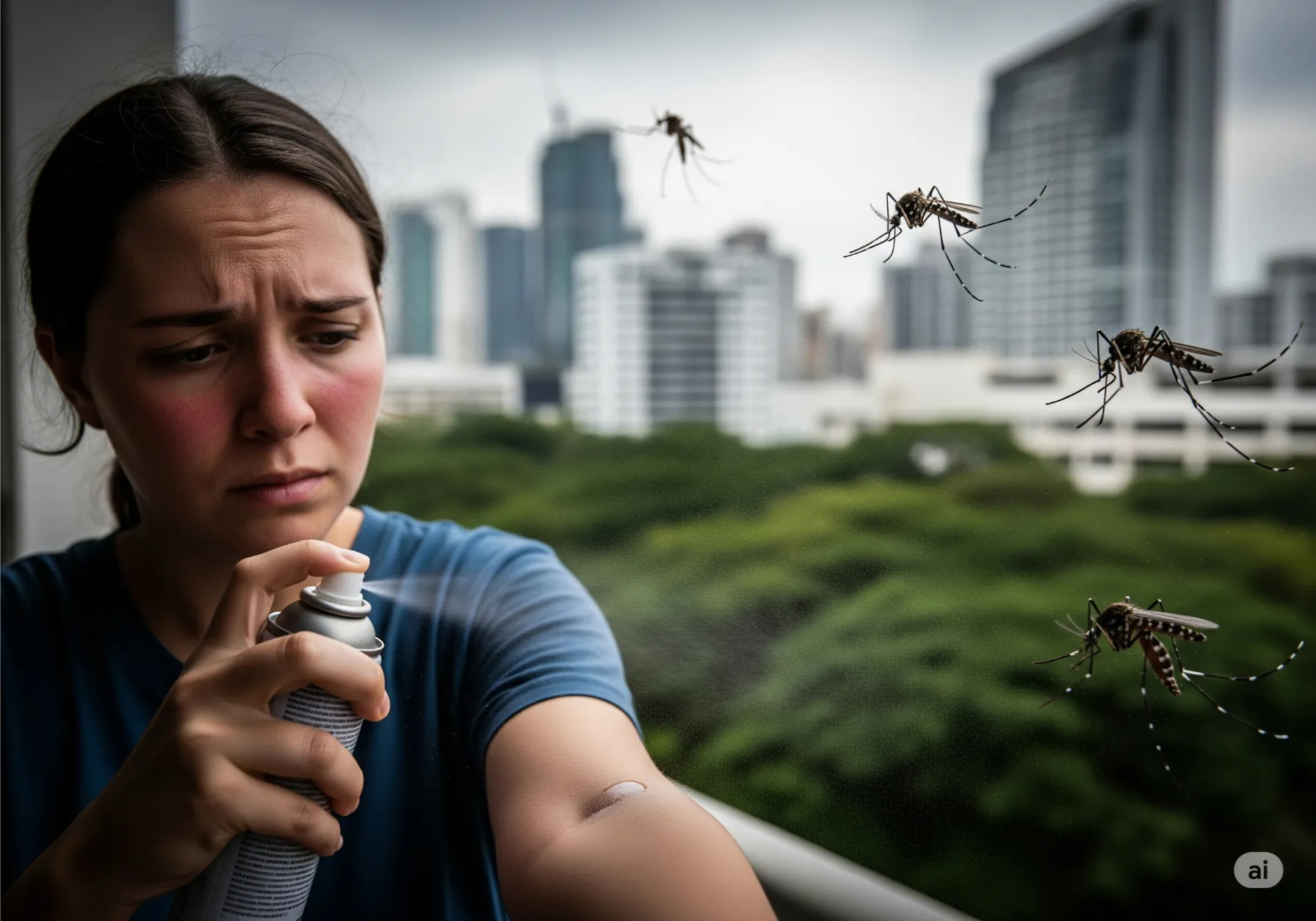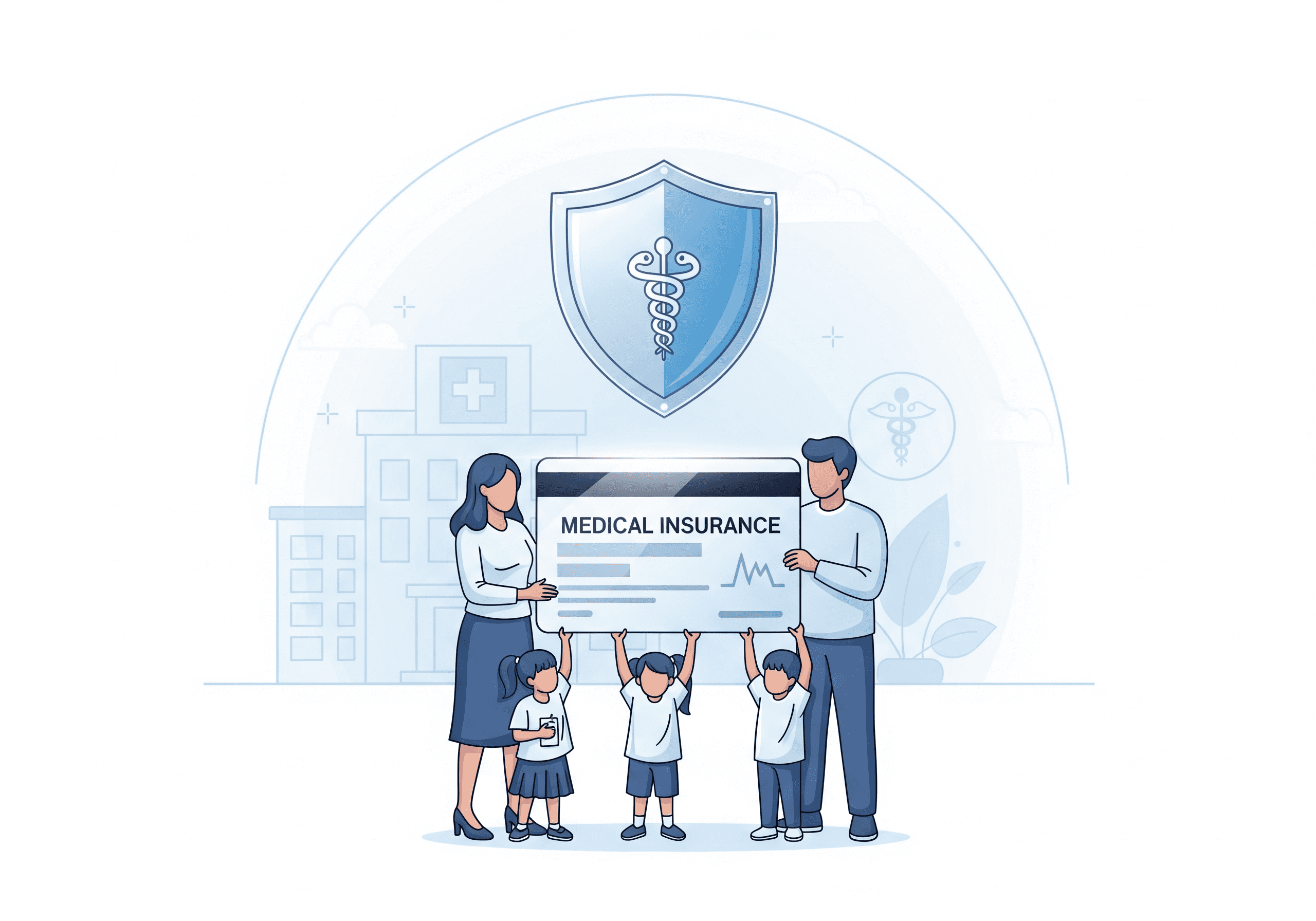Introduction: The Shifting Sands of Wellness
For centuries, the concept of wellness has largely been approached through a generalized lens. Dietary guidelines, exercise regimens, and medical treatments were often formulated for broad populations, with the understanding that individual responses might vary. This one-size-fits-all approach, while providing a foundational framework for health, inherently lacked the nuanced understanding of individual biological intricacies and lifestyle variations that truly define well-being.
However, the landscape of wellness is undergoing a profound transformation. Driven by exponential advancements in artificial intelligence (AI) and the burgeoning movement of bio-hacking, a new paradigm is emerging: personalized wellness. This revolutionary approach moves beyond generic recommendations, leveraging the power of data, technology, and a proactive, experimental mindset to optimize individual health and well-being in unprecedented ways.
The confluence of AI and bio-hacking represents a powerful synergy. AI algorithms can sift through vast datasets of biological, environmental, and behavioral information to identify unique patterns and predict individual health trajectories. Bio-hacking, on the other hand, empowers individuals to take a data-driven, experimental approach to understanding and manipulating their own biology to achieve specific wellness goals. Together, they are democratizing access to highly personalized insights and tools, paving the way for a future where individuals are empowered to take control of their health journey like never before.
This article delves into the multifaceted rise of personalized wellness, exploring the key technologies and trends driving this revolution, the potential benefits and challenges it presents, and the ethical considerations that must be addressed as this transformative field continues to evolve.
The Power of Artificial Intelligence in Personalized Wellness
Artificial intelligence is proving to be a cornerstone of the personalized wellness revolution. Its ability to analyze massive and complex datasets with speed and accuracy far surpasses human capabilities, making it an invaluable tool for understanding the intricate interplay of factors that influence individual health. Several key applications of AI are driving the personalization of wellness:
1. Data Analysis and Pattern Recognition
At its core, AI excels at identifying patterns and correlations within large datasets. In the context of wellness, this includes analyzing data from wearable devices (smartwatches, fitness trackers), genetic testing, microbiome sequencing, electronic health records, lifestyle questionnaires, and even environmental sensors. By processing this diverse information, AI algorithms can identify unique biomarkers, predict individual risks for certain conditions, and understand how specific lifestyle choices impact an individual’s health metrics in real-time.
For instance, an AI-powered platform might analyze sleep patterns, heart rate variability, activity levels, and dietary logs to identify subtle indicators of stress or fatigue before they manifest as more significant health issues. It can then provide personalized recommendations for sleep optimization, stress management techniques, or dietary adjustments tailored to the individual’s specific physiological responses.
2. Personalized Recommendations and Coaching
Based on the insights derived from data analysis, AI can deliver highly personalized recommendations and act as a virtual wellness coach. These recommendations can range from tailored exercise plans that adapt to an individual’s fitness level and recovery rate to nutrition plans that consider their genetic predispositions and dietary preferences. AI-powered chatbots can provide on-demand support, answer questions, track progress, and offer motivational guidance, making personalized wellness support more accessible and convenient.
Imagine an AI-powered nutrition coach that analyzes your genetic profile, blood glucose levels (from a continuous glucose monitor), and dietary logs to create a meal plan optimized for your specific metabolic needs and health goals. It can suggest recipes, track macronutrient intake, and even provide real-time feedback on food choices based on their potential impact on your blood sugar levels and overall well-being.
3. Predictive and Preventative Healthcare
One of the most promising applications of AI in personalized wellness lies in its ability to predict future health risks and facilitate preventative interventions. By analyzing an individual’s unique data profile, AI algorithms can identify early warning signs of chronic diseases like diabetes, cardiovascular disease, or neurodegenerative disorders, often long before traditional diagnostic methods would detect them.
This predictive capability allows for proactive interventions, such as lifestyle modifications, targeted screenings, or early medical interventions, which can significantly improve health outcomes and potentially prevent or delay the onset of these conditions. For example, AI analysis of genetic data and family history might identify an increased risk for a specific type of cancer, prompting more frequent and targeted screening procedures.
https://superficialfruit.com/d.mvFizHdqGhNDvWZ/GoUN/UelmZ9HunZcUul/kPP/TcYJ2hMWz/EJ0VMgDUc/t/NejhYPzkMRTjQuwhOzAb4. Drug Discovery and Personalized Medicine
While closely related to personalized wellness, the application of AI in drug discovery and personalized medicine deserves mention as it significantly impacts individual health outcomes. AI algorithms can accelerate the identification of potential drug targets, predict drug efficacy and side effects in specific patient populations (based on their genetic and other biological markers), and even assist in the development of personalized therapies tailored to an individual’s unique disease profile.
This is particularly relevant in fields like oncology, where AI is being used to analyze tumor genomics and identify the most effective targeted therapies for individual patients, moving away from a more generalized approach to cancer treatment.
The Empowering World of Bio-Hacking
Bio-hacking, also known as DIY biology or citizen science, represents a grassroots movement that empowers individuals to take a proactive and experimental approach to understanding and optimizing their own biology. Fueled by readily available technologies, increasing access to personal data (through wearable devices and direct-to-consumer testing), and a desire for greater control over their health, bio-hackers employ a diverse range of strategies to enhance their physical and cognitive well-being. Key aspects of the bio-hacking movement that contribute to personalized wellness include:
1. Self-Experimentation and Data-Driven Insights
At the heart of bio-hacking lies a culture of self-experimentation. Individuals meticulously track various biomarkers (e.g., sleep quality, heart rate variability, blood glucose levels, cognitive performance) while experimenting with different interventions, such as dietary changes (e.g., ketogenic diet, intermittent fasting), supplementation, exercise protocols, sleep optimization techniques, and cognitive enhancement strategies (e.g., nootropics, meditation).
By rigorously collecting and analyzing their own data, bio-hackers gain personalized insights into how their bodies respond to different stimuli and identify what works best for their individual physiology. This data-driven approach moves beyond anecdotal evidence and generic recommendations, allowing for highly tailored wellness strategies.
2. Wearable Technology and Personal Data Tracking
The proliferation of affordable and sophisticated wearable technology has been instrumental in the rise of bio-hacking and personalized wellness. Smartwatches, fitness trackers, continuous glucose monitors, and sleep trackers provide a continuous stream of real-time physiological data, empowering individuals to monitor their health metrics, identify trends, and understand the immediate impact of their lifestyle choices.
This constant feedback loop allows for immediate adjustments and reinforces positive behaviors. For example, seeing a direct correlation between a good night’s sleep (tracked by a sleep monitor) and improved next-day cognitive performance can motivate individuals to prioritize sleep hygiene.
3. Nutrigenomics and Personalized Nutrition
Advancements in genetic testing have made it increasingly accessible for individuals to understand their genetic predispositions related to nutrition, metabolism, and disease risk. Nutrigenomics, the study of how genes interact with nutrients, allows bio-hackers to tailor their diets based on their unique genetic makeup.
For instance, individuals with a genetic predisposition to caffeine sensitivity might choose to limit their intake, while those with a higher risk of vitamin D deficiency might focus on supplementation and sun exposure. This personalized approach to nutrition can optimize nutrient absorption, improve metabolic function, and potentially mitigate the risk of certain diseases.
4. The Quantification of Sleep and Recovery
Sleep is increasingly recognized as a cornerstone of overall health and well-being. Bio-hackers often employ various tools and techniques to optimize their sleep, including wearable sleep trackers to monitor sleep stages and quality, smart alarms that wake them during lighter sleep phases, and strategies to optimize their sleep environment (e.g., temperature, light, noise).
Similarly, bio-hacking principles are applied to optimize recovery from physical exertion and stress. This can involve techniques like heart rate variability (HRV) monitoring to gauge the body’s readiness for training, the use of recovery tools (e.g., foam rollers, massage guns), and stress management practices (e.g., meditation, mindfulness).
5. Cognitive Enhancement and Nootropics
A significant area of interest within bio-hacking is cognitive enhancement. Individuals explore various strategies to improve focus, memory, creativity, and overall cognitive function. This can include lifestyle interventions like optimized sleep and nutrition, as well as the use of nootropics – substances that are claimed to enhance cognitive abilities.
While the efficacy and safety of some nootropics are still under investigation, the bio-hacking community often engages in self-experimentation with these substances, carefully tracking their cognitive performance to identify potential benefits and side effects.
The Convergence: AI Amplifying Bio-Hacking
The true power of personalized wellness emerges from the convergence of AI and bio-hacking. AI algorithms can significantly enhance the effectiveness and efficiency of bio-hacking endeavors by:
- Analyzing self-collected data at scale: Bio-hackers generate vast amounts of personal data. AI can provide the analytical power to identify meaningful patterns and correlations within this data that might be missed by individual analysis.
- Providing personalized insights and recommendations: Based on the analysis of an individual’s bio-hacking data and potentially aggregated data from similar individuals, AI can offer more refined and targeted recommendations for interventions.
- Predicting the outcomes of different bio-hacking strategies: AI models can potentially predict how an individual might respond to different dietary changes, supplements, or exercise protocols based on their unique biological profile, reducing the trial-and-error aspect of bio-hacking.
- Automating data tracking and analysis: AI-powered platforms can automate the collection and analysis of data from various sources (wearables, testing kits, manual logs), freeing up individuals to focus on experimentation and implementation.
For example, an AI platform could integrate data from a continuous glucose monitor, a sleep tracker, and dietary logs, combined with genetic information, to provide a bio-hacker with highly personalized recommendations for optimizing their blood sugar control, sleep quality, and energy levels.
Benefits of Personalized Wellness
The rise of personalized wellness through AI and bio-hacking offers a multitude of potential benefits for individuals and society as a whole:
- Improved Health Outcomes: By tailoring interventions to individual needs, personalized wellness has the potential to lead to more effective prevention and management of chronic diseases, improved mental health, and enhanced overall well-being.
- Increased Engagement and Motivation: When individuals see tangible results and understand how specific interventions are impacting their own bodies, they are likely to be more engaged and motivated in their wellness journey.
- Greater Self-Awareness and Empowerment: Personalized wellness empowers individuals to become more knowledgeable about their own biology and take a more active role in managing their health.
- Earlier Detection of Health Issues: AI-powered analysis of personal data can identify subtle anomalies and potential health risks at earlier stages, allowing for timely interventions.
- Optimization of Performance: Beyond health, personalized wellness principles can be applied to optimize physical and cognitive performance, leading to improvements in areas like athletic achievement, productivity, and learning.
- Reduced Healthcare Costs: By focusing on prevention and early intervention, personalized wellness has the potential to reduce the burden on traditional healthcare systems in the long term.
Challenges and Ethical Considerations
Despite the immense potential of personalized wellness, several challenges and ethical considerations must be addressed as this field continues to evolve:
- Data Privacy and Security: The collection and analysis of vast amounts of personal health data raise significant concerns about privacy and security. Robust measures are needed to protect this sensitive information from unauthorized access, misuse, or breaches.
- Data Accuracy and Reliability: The accuracy and reliability of data from wearable devices and direct-to-consumer testing can vary. It is crucial to ensure that the data used for personalized recommendations is of high quality and properly validated.
- Algorithmic Bias and Equity: AI algorithms are trained on data, and if that data reflects existing biases in healthcare, the resulting recommendations could perpetuate or even amplify these inequities. Efforts are needed to ensure that personalized wellness solutions are equitable and accessible to all individuals, regardless of their background.
- Accessibility and Affordability: Currently, many personalized wellness technologies and services can be expensive, potentially creating disparities in access. Efforts are needed to make these tools more affordable and accessible to a wider population.
- The Potential for Misinformation and Misinterpretation: The increasing availability of health information and self-tracking tools can also lead to misinformation and misinterpretation of data, potentially causing unnecessary anxiety or inappropriate self-treatment.
- The Blurring Lines Between Wellness and Medicine: As personalized wellness becomes more sophisticated, the lines between general wellness advice and medical diagnosis or treatment may become blurred. Clear regulatory frameworks and guidelines are needed to navigate these boundaries.
- The Risk of Over-Optimization and Anxiety: An excessive focus on optimizing every aspect of one’s biology can lead to anxiety, obsession, and a diminished sense of well-being if not approached with a balanced perspective.
- The “Quantified Self” and its Psychological Impact: While data can be empowering, an overemphasis on self-quantification could lead to a disconnect from intuitive understanding of one’s body and needs.
The Future of Personalized Wellness
The future of personalized wellness through AI and bio-hacking is likely to be characterized by even greater integration of technology, deeper understanding of individual biology, and a more proactive and preventative approach to health. Key trends to watch include:
- More Sophisticated Wearable and Implantable Technology: We can expect the development of even more advanced wearable sensors and potentially implantable devices that provide a continuous and more comprehensive view of our physiological state.
- Advancements in Multi-Omics Data Integration: The integration of data from genomics, transcriptomics, proteomics, metabolomics, and the microbiome will provide a more holistic understanding of individual biological complexity. AI will play a crucial role in analyzing these vast multi-omics datasets.
- The Rise of Personalized Interventions: Based on deeper biological insights, we will see the development of more targeted and personalized interventions, including tailored nutrition plans, personalized exercise regimens, and even individualized therapies.
- Greater Democratization and Accessibility: As technology costs decrease and awareness grows, personalized wellness tools and services are likely to become more accessible to a wider population.
- Integration with Traditional Healthcare: The future will likely see a greater integration of personalized wellness approaches with traditional healthcare systems, with physicians leveraging individual data to make more informed clinical decisions.
- Focus on Longevity and Healthspan: Personalized wellness will increasingly focus on extending not just lifespan but also healthspan – the number of years lived in good health and vitality.
- The Development of AI-Powered Wellness Platforms: We can expect the emergence of comprehensive AI-powered platforms that integrate data from various sources, provide personalized insights and recommendations, and connect individuals with relevant resources and communities.
Conclusion: Embracing the Personalized Wellness Revolution
The convergence of artificial intelligence and bio-hacking is ushering in a transformative era for wellness. By harnessing the power of data analysis, self-experimentation, and technological innovation, individuals are gaining unprecedented insights into their own biology and the ability to optimize their health and well-being in highly personalized ways.
While significant challenges and ethical considerations must be addressed, the potential benefits of personalized wellness are immense, ranging from improved health outcomes and increased self-awareness to the possibility of preventing chronic diseases and extending healthspan. As technology continues to advance and our understanding of human biology deepens, the personalized wellness revolution promises to empower individuals to take greater control of their health journey and forge a future where well-being is truly tailored to the unique needs of each individual. Embracing this revolution, with careful consideration of its implications, holds the key to a healthier and more vibrant future for all.












✏ ⏳ Alert: 0.7 BTC expiring. Open account > https://graph.org/CLAIM-YOUR-CRYPTO-07-23?hs=ccb1702bc0d724eabf1d75cc00866f36& ✏
zbr08g